Since his inauguration five weeks ago, Donald Trump has taken numerous steps to cripple the emerging U.S. EV market. His latest move: shutting down about 8,000 charger ports currently operating at federal government buildings. He also has ordered the GSA to get rid of the EVs it recently acquired for its fleet. More from Headlight.News.
From eliminating incentives and sales mandates to pulling billions set aside to fund the rollout of a nationwide public charging network, Pres. Donald Trump has made killing off EVs a major part of his agenda. And, according to several new reports, he’s taking the campaign in-house.
An estimated 8,000 chargers operating at federal buildings will be unplugged, both the Verge and Colorado Public Radio said, siting internal government sources and a draft e-mail. The move is expected to be announced formally this week.
Trump plans to go a step further, ordering the General Services Administration, or GSA, to get rid of the battery-electric vehicles it purchased during the Biden administration.
He loves EVs, he loves them not
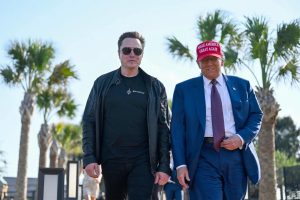
While Musk appeared to influence Trump to a more pro-EV stance, the president has backed down since assuming office.
The new president has had a long history of opposing green technology, among other things declaring that wind turbines can cause cancer. He has falsely claimed EVs “are all made in China,” as well.
But, during the run-up to the November 2024 election, Trump appeared to reverse course, He indicated he was suddenly in favor of EVs following Tesla CEO Elon Musk’s move to support his campaign. ““I have to be, you know, because Elon endorsed me very strongly, Elon. So I have no choice,” said Trump during a Georgia campaign rally.
Since moving into the White House, however, the former New York businessman has again reverted to a harshly anti-EV stance.
Pulling the plug
Trump has taken a number of steps expected to limit EV sales, among other things indicating plans to end federal tax credits for buyers and, earlier this month, having his administration halt federal funding for a nationwide public charger roll-out. The Biden administration had set aside $5 billion in funds from the infrastructure act.
The former president’s pro-EV policies were backed up by a network of approximately 8,000 chargers installed everywhere from the White House to regional government buildings. Even though they are already in place, the GSA is canceling contracts and moving to have them” turned off at the breaker,” the email reads, according to Colorado Public Radio. Other chargers will be turned off starting next week.
“Neither Government Owned Vehicles nor Privately Owned Vehicles will be able to charge at these charging stations once they’re out of service.”
More Trump/Auto News
- Trump Has the Auto Industry in His Sights
- Automakers Brace as Trump Promises New Tariffs on April 2
- Tesla Stock Tumbles as CEO Musk Wields the Axe for Trump
But wait, there’s more

Former Pres. Joe Biden, shown here checking out a Ford F-150 Lightning, was a strong advocate of EVs.
Though just 8,000 government chargers are now operating, another 25,000 were in various stages of installation, work now set to be halted.
Separately, the GSA was set to manage a growing fleet of EVs operating across the federal government. Under Biden, the goal was to go electric with half of the federal fleet of 650,000 vehicles.
Exactly how many are now electric is unclear. In March 2024, a GSA news release indicated the fleet already had more than 58,000 electric vehicles, more being delivered on a continuing basis.
Headlight.News has reached out to the GSA to see what will happen to those vehicles under the new policy. Some reports have indicated the EVs might simply be parked, rather than sold off. Either way, the latest move will generate substantial waste for U.S. taxpayers.

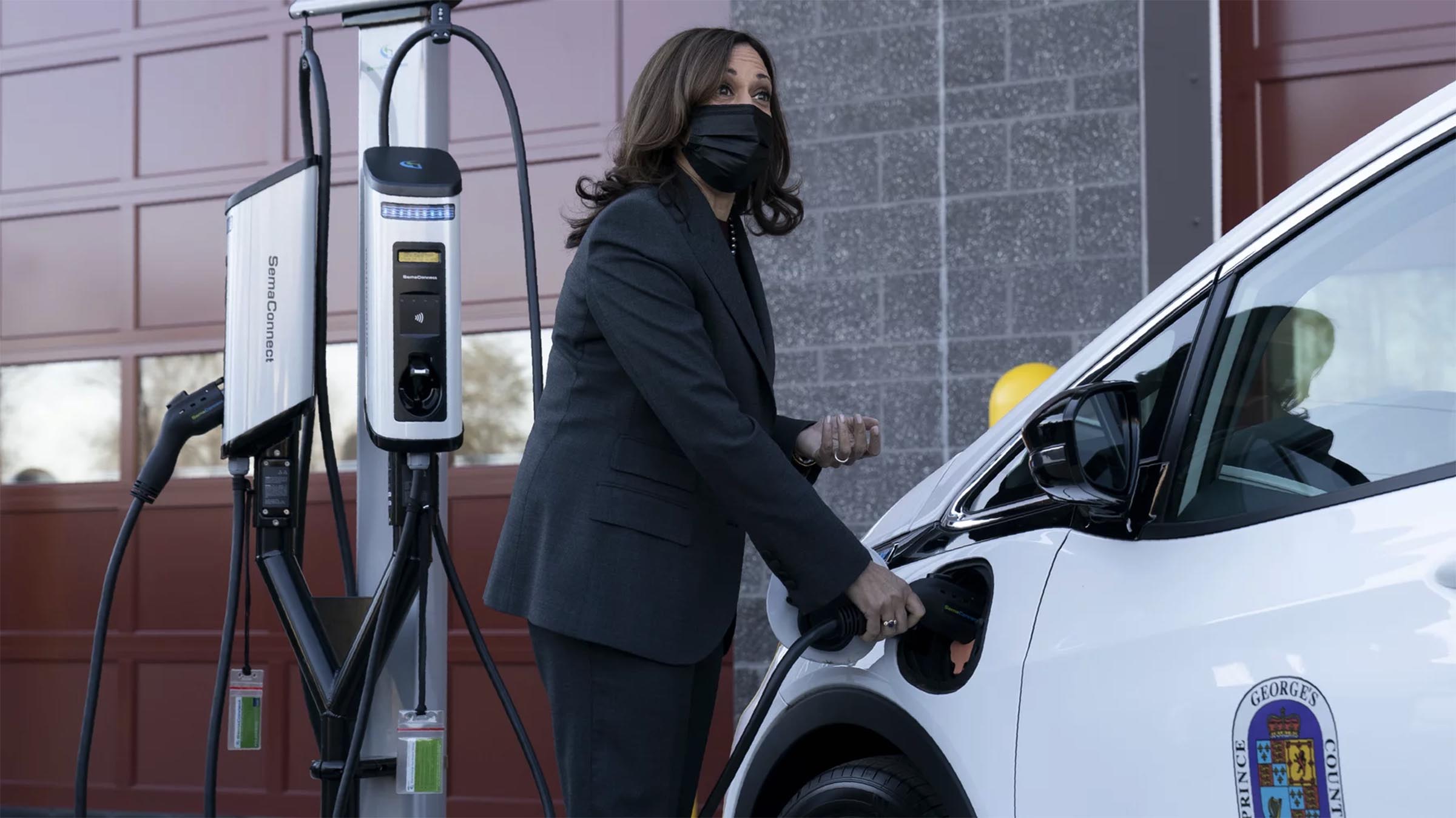
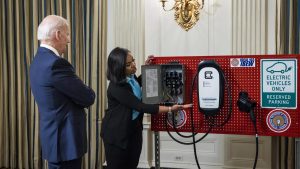


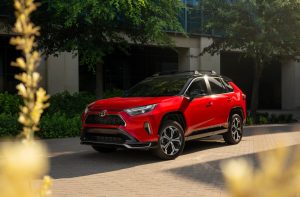
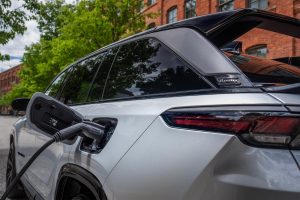
What a total waste of money by this idiot. I still do not understand what is the problem with EVs? I don’t have one and don’t particularly want one, but that will probably change in the future. In the meantime, though, why halt the progress of technology? Why discourage people from buying products they want to buy? If Elon Musk could do one thing right, it might be telling his under-President to go back to playing golf and forget about his campaign against EVs.
There are observers who called the 2nd Trump term “the vengeance tour.” Based on the moves he is making, from pulling chargers to pulling NatSec clearance for folks like Biden and Gen. Milley, that appears to be a very good description.
How about some details on the chargers that are being removed?
Waiting for comment from GSA. Under Trump there is no transparency. Few responses to queries of any form.